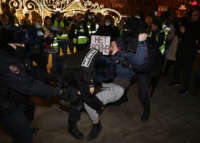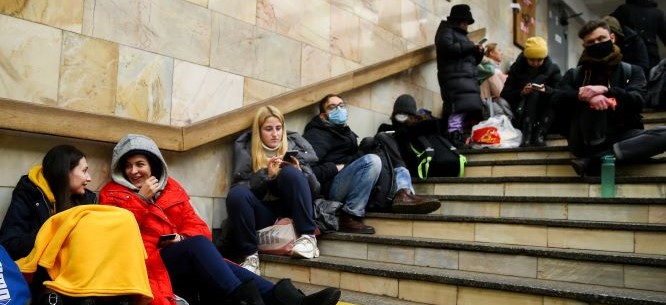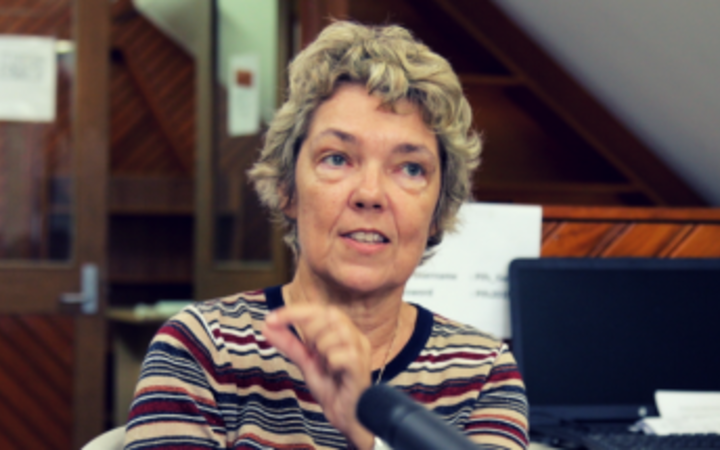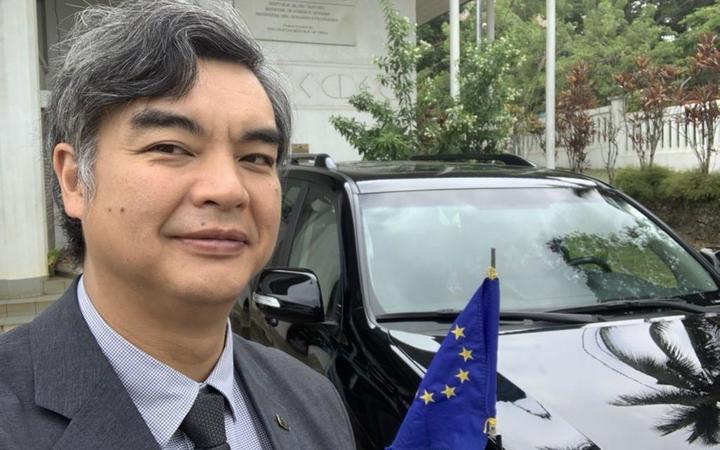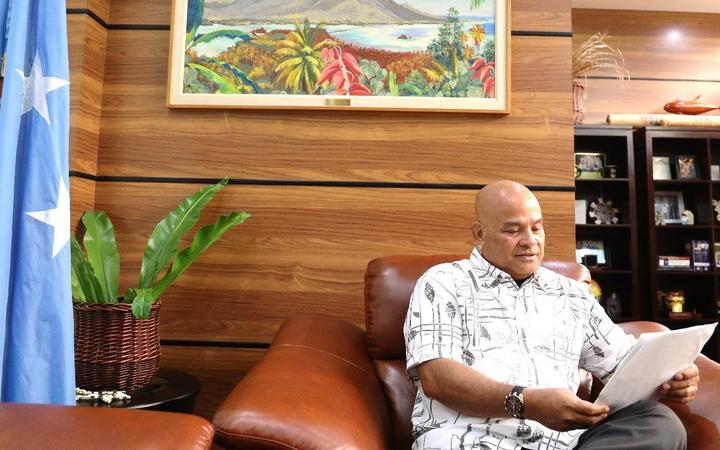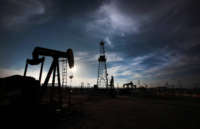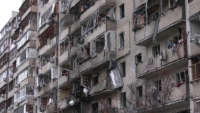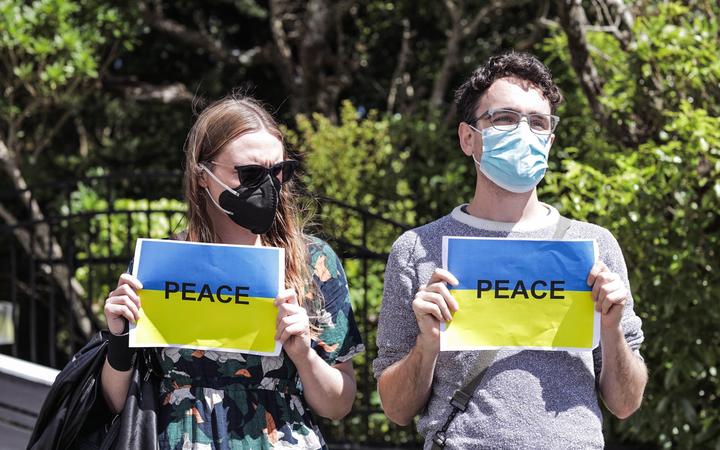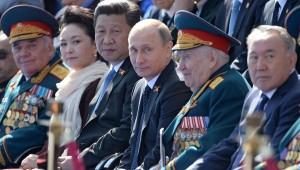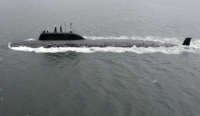Janine Jackson interviewed Bryce Greene about Ukraine for the February 18, 2022, episode of CounterSpin. This is a lightly edited transcript.
CounterSpin220218Greene.mp3
Janine Jackson: Many Americans are confused or just unknowledgeable about Ukraine. They couldn’t find it on a map. A 2014 Washington Post story noted that the less Americans know about Ukraine’s location, the more they want the US to intervene.
Well, into that void have rushed corporate news media, telling us for weeks now that there is a threat—presumably to us—over there, and we need to get ready for war. The ease with which media step into saber-rattling mode, the confidence as they soberly suggest people other than themselves might need to be sent off to a violent death in service of something they can only describe with vague platitudes, should be disturbing. US officials accusing journalists who ask basic evidentiary questions of consorting with the enemy—should be disturbing.
The very fact that news media have a framework in which there are enemies whose actions don’t merit thoughtful consideration, and a US “us” whose actions are always good, all of this should disturb you—not just about foreign policy, but about the power of news media to amp people up to accept horrific, avoidable actions.
The current crisis with the US and Russia about Ukraine is a test of many things, not least news media’s ability and willingness to disengage themselves from these frozen narratives, from uncritical parroting of official sources, and from the devastating idea that diplomacy is weakness, and massive violence, or threats of massive violence, are the best way to address conflict.
Bryce Greene’s piece, “What You Should Really Know About Ukraine,” appeared recently on FAIR.org. He joins us now by phone from Indianapolis. Welcome to CounterSpin, Bryce Greene.
Bryce Greene: Thanks for having me on. I’m happy to be here.
JJ: Your straightforward piece, an explainer about explainers, got more than 3,000 shares on FAIR.org. People needed it. And I’m just going to ask you to talk us through the official line on Ukraine, and the questions that we should have about it. Because all of the elements—Russians as cartoons; the US, as ever, engaged in democracy promotion; oh, are there material interests there? How dare you suggest!— It’s all so dusty, this playbook, you know?
And part of what feels so dated about it is that it’s about NATO. I know for a fact that listeners under, like, heck, 40 years old are like, well, I’ve heard the word NATO, but whaat? You know, why? Isn’t the Cold War over? And yet NATO, and what it represents in 2022, are at the core here. So just start us off wherever you would like to, in terms of helping people understand what’s actually going on right now.
BG: Right, so most media outlets try to put the current escalation in context. And when they do, they usually start at one event, the 2014 annexation of Crimea. And they use this to demonstrate how Russia has imperial ambitions to reconquer the old Soviet territories and reestablish the old Soviet Union.
But for that to have any real credibility, you need to ignore what happened right before 2014, what happened right before the Donbas uprising, what happened before Russia began backing the separatist rebels.
And that takes you back to early 2014, when the US government helped violently oust the president of Ukraine, Viktor Yanukovych, in what was called the Maidan Coup. After he fled the country, the new government immediately established closer ties to Europe and the US, and turned away from Putin’s Russia.
Now, understanding why and how we did that is key to understanding Putin’s actions today. Like, if the United States had a neighbor who recently had a government change, instigated in part by Russia, and then that country tried to join a hostile military alliance, I think the US would be rightly concerned. They’d lose their minds. But you don’t really see that same concern extended to what’s going on over there in Ukraine.
So this whole story of NATO expansion and economic expansion, it begins right after the Cold War and the dissolution of the Soviet Union. The US and Russia made a deal that NATO, the Cold War alliance, would not expand east past a reunified Germany. No reason to escalate tensions unnecessarily.
But unfortunately, Washington decided to expand anyway. And, you know, they were the only superpower left, there was no one to challenge them, so they decided they could do it. They ignored Russian objections and continued to enlarge the military alliance one country at a time.
And even at the time, Cold Warriors like the famed diplomat George Kennan warned that this was a recipe for disaster. It would make Russia feel trapped and surrounded, and when major nuclear powers feel trapped and surrounded, it doesn’t really make for a peaceful world.
But as we all know, Washington isn’t in the interest of peace, and they did it anyway. In 2004, the US poured millions of dollars into the anti-Russian opposition in Ukraine. They funded media and NGOs supporting opposition candidates. And they did this using organizations like the NED, the National Endowment for Democracy, and USAID. These organizations are broadly understood to serve regime change interests in the name of “democracy.”
Now, in 2004, it didn’t work exactly, but Ukraine began to start making closer ties to the EU and US. And that process continued up to 2014.
Shortly before the overthrow, the Ukrainian government was negotiating closer integration into the EU, and closer integration with the Western economic bloc. And they were being offered loans by the International Monetary Fund, the major world lending agency that represents private interests around the Western world. So to get those loans, they had to do all sorts of things to their economy, commonly known as “structural adjustment.” This included cutting public sector wages, shrinking the health and education sectors, privatizing the economy and cutting gas subsidies for the people.
And at the time, Russia was offering a plan for economic integration to Ukraine that didn’t contain any of these strings. So when President Viktor Yanukovych chose Russia, well, that set off a wave of protests that were supported and partially funded by the United States. In fact, John McCain and Obama administration officials even flew to the Maidan Square to help support the protesters who wanted to oust the president and change the government.
So at this point, I want listeners to ask themselves, what if Russia were sending high-level government officials to anti-government protests in Canada or Mexico? What if one of Putin’s advisors right now went to go encourage the trucker protests in Canada, and said that they should get rid of their kind of government? We’d lose our minds. And rightfully so. That’s just ridiculous. And what’s worse is that right after the protests started, there was a leaked phone call between Victoria Nuland, one of Obama’s State Department advisors—
JJ: Right.
BG: —and the US ambassador to Ukraine, in which they were describing how they wanted to set up a new government. They were picking and choosing who would be in the government, who would be out.
Well, a few weeks after that, the Ukrainian government was overthrown. And the guy who they designated as our guy, Arseniy Yatsenyuk, became the prime minister.
So clearly, clearly, there’s a lot of US involvement in how the Ukrainian government has shifted over the last decade. After 2014, the Ukrainians opted to accept the IMF loans, they opted to further integrate with the EU economically. And Russia is watching all of this happen. And so immediately after the overthrow, the eastern regions in Ukraine, who were ethnically closer to Russians, and they speak Russian and they favor closer ties to Russia—
JJ: Right.

Bryce Greene: “This current escalation started because of the US involvement in the Ukrainian government’s politics.”
BG: They revolted. They started an uprising to gain more autonomy, and possibly to separate from the Ukraine entirely. The Ukrainian government cracked down hard. And that only fueled the rebellion, and so Russian sent in volunteers and soldiers to help back these rebels. Now, of course, Russia denies it, but we all know they are.
And so since 2014, that sort of civil war has been at a stalemate, and every so often there would be a military exercise on the border by one side or another. But really nothing much has changed. And so this current escalation started because of the US involvement in the Ukrainian government’s politics.
JJ: Right.
BG: And when Russia started building up troops on the border, the United States started saying, hey, they’re about to attack. Of course, they didn’t have any evidence for that. The Russians had built up troops on the border in similar numbers in the past without a similar panic.
JJ: Right.
BG: But this time there was a lot of panic. So at this point the US media starts saying that, yes, this is Russia; they’re building up to invade Ukraine. They’re similar to Hitler or some other dictator that’s violating national sovereignty. And so now you have the US sending millions and millions and millions of dollars in weapons. They’re claiming that an invasion is imminent. There was this strange thing from the State Department about the Russians planning a false flag attack to justify an invasion. Of course, the State Department didn’t provide any evidence of that.
JJ: And in fact, a reporter, Matt Lee of AP, pushed back on that, famously.
BG: Yeah. Like a normal person should. Then Ned Price, the State Department spokesperson, accused him of being pro-Russia, or consorting with the enemy. It was really ridiculous.
But those are the roots of this entire escalation, this situation, these heightened tensions. And all of that is completely omitted from the Western media. How can you talk about the current situation without talking about the past? How can you understand Russia’s actions without understanding how the United States might have provoked them? And yet you have pundits all over the place asking, what does Putin want? Who knows if Putin’s going to invade? Or on another end is, like, Putin won’t stop with Ukraine. He’ll keep going. His goal is to reestablish the Soviet Union, or the Russian empire. And this is all ridiculous.
From the start, Putin has been clear that he does not want NATO to expand, that he does not want missiles stationed just across his border. He doesn’t want troops there. He doesn’t want those problems on his border. But that doesn’t seem to be something that the United States media can understand. In fact, when Putin sent a proposal to Biden, talking about NATO, talking about the weapons, talking about the missiles, the media described these as non-starters.
JJ: Mmhm.
BG: As if asking for missiles not to be pointed at you at, point blank range, is out of the question to ask. Putin should accept that there will be a bunch of missiles, there will be a bunch of soldiers and military bases, all pointed at him. And that doesn’t square. Imagine, again, if the US were being asked to tolerate missiles pointed at us in Mexico or Canada. Again, we would go crazy.
JJ: Well, US exceptionalism is part of the price of admission to serious news media conversation. You’re supposed to accept that the US has the right to intervene anywhere, anytime. If we’re going to talk about who owes who what, or the US, James Baker, made a commitment about NATO and its reach, and somehow that’s also off the page.
BG: It’s sometimes discussed in media. Like, there was a Washington Post article, and they interviewed Mary Sarotte. And she wrote one of the major books talking about this promise not to expand to the east, and she said, straight up, Washington got greedy, and that destabilized the region. That was just one interview in a sea of the official line, in a sea of opinions and articles talking about how Vladimir Putin wants to expand the Soviet empire. Just having one article in the midst of all the noise, it doesn’t really do much to cut through.
So it is admitted by the media, but it isn’t really addressed. They don’t take it into account when they do their analyses. And that reflects a major American exceptionalist bias.
JJ: Let me just say, polls, despite the media onslaught, despite corporate media slipping so easily into saber-rattling mode—it’s just so unsettling to see the ease with which news media go back into yeah, them, they’re horrible. Yes, us, we’re great, and surely killing is the answer. Despite all of that, and despite disinformation, polls are still showing that people in the US don’t want a war with Russia. Apparently Russian polls show that Russian people don’t want a war. People understand the harms of these things that pundits are blithely tossing about.
BG: Mmhm.
JJ: And so I just want to ask you, there are other voices. There are other ideas about how to go forward. Can you just talk about other avenues, what diplomacy might look like, what media that take diplomacy seriously might look like, or might include or exclude?
BG: Part of the stalemate between the eastern Donbas rebels and the Ukrainian government, part of that was started because they agreed to a ceasefire in something called the Minsk II agreement.
JJ: Right.
BG: The Minsk agreements were an arrangement where the Ukraine would provide a degree of autonomy to the Donbas region, and Russia would withdraw all of its volunteers and troops. The area would be sort of demilitarized, and then there would be elections in that region and some sort of special status for that region afterwards.
Well, Ukraine has refused to implement it, and Washington and the rest of the European Union, they don’t really push Ukraine on this. There are a lot of reasons for that; mainly one of them is because they don’t think that they would be able to join NATO if they had a region of their country that isn’t fully controlled by the country. And so there’s been sort of a stagnation there.
But there’s been a lot of people, analysts, who are talking about restarting these Minsk II agreements, talking about how can we get to a point where we’re talking about it again, and implementing it and maybe reimagining it for a more recent time, a more modern time? But those voices are very rarely included in the mainstream media. People talk about negotiations, and then they talk about all the “non-starters” that Putin’s offering, but they don’t talk about the framework for diplomacy that already exists.
One of the best commentators is Anatol Lieven of the Quincy Institute for Responsible Statecraft. He writes very clearly. He had a very good article in The Nation about the Minsk II agreements. And there are some in the media who do take his voice and amplify it. He was on Mehdi Hasan’s show on MSNBC, one of the only decent people on MSNBC.
JJ: Right.
BG: And then I think he was interviewed once on NPR. But beyond that, no one hears about that. No one hears that there is a diplomatic solution that can apply to the situation. And so the result is that people are scared that, OK, there’s going to be a war. And the only off-ramp seems to be non-starters.
JJ: And it’s disheartening, in the sense that people who, I’m talking about US citizens, they really don’t have a beef with Ukraine. They don’t know what’s going on in Ukraine. They are only looking at news media for their cues —
BG: Mmhm.
JJ: —of what to understand and how to feel. And we didn’t even get started on if you learn more about Ukrainian movements and what they’re about, would those be the team that you would back, you know?
BG: Right, right.
JJ: That’s a whole other story, yeah?
BG: Yeah. So part of the opposition that helped topple the government in 2014 were made up of the far right. And I know we in America throw around the term “Nazi.” Sometimes it applies, sometimes it doesn’t.
JJ: Mmhm.
BG: Here, in this case, it absolutely applies. These are open Nazis flying Nazi symbols, Nazi flags, doing Nazi salutes, and they have an ethnic purity idea about why they’re opposed to Russia.
And so the United States utilized these people to help overthrow the government. There was a lot of violence around the time of the overthrow. Some of these Nazis, they actually gathered a bunch of protestors in a building, locked the doors, and set the building on fire, killing dozens. But none of this is talked about when we talk about the current situation.
And part of those far-right groups, part of those far-right militias, they were integrated into the Ukrainian military, the Ukrainian National Guard. And this is the same national guard that the US has given about $2.5 billion. And we don’t talk about it.
Congress did have a provision that restricted aid to this specific sector of the Ukrainian military. But there was a report from, I think, the Daily Beast that said that there really is no mechanism for enforcing that. Like, it’s on paper, but it’s not in practice. And so the United States is actively funding Nazi militias. That’s just a fact.
And, in fact, recently there was a picture of an old woman holding an AK-47 in a training session. And it was used in Western media to show that the Ukrainian people are ready to defend their homeland. Well, people did some digging on the ground, and it turns out that this was a public relations event staged by these Nazis, by the Azov Battalion. But no one reported that in Western media. In fact, I think it was Richard Engel of NBC, I believe, who tweeted a picture of it. People called him out, they said, hey, these are Nazi people. There was actually a Nazi patch visible in the footage that was used on TV. No accountability.
JJ: No.
BG: No accountability, no one is forced to say, oops, sorry, I didn’t mean to spread Nazi propaganda to Western audiences.
JJ: Right.
BG: No one is saying that. But that’s US media for you. You see it in Czech press, in Irish press, and all over the world. They’re like, yeah, these were straight-up Nazis, this was a Nazi event. And the US media can’t seem to grasp this.
JJ: I’ll just finish up where we started, because I know that listeners are uninformed, and almost ashamed of being uninformed, about what’s going on, as is often the case in foreign policy. And then they’re relying on US media to tell them which side they’re on, and to explain the interest. And just in a final minute or so, somebody’s picking up a paper, looking at Ukraine. What are some questions that you would just say, keep this in your mind as you read this coverage? ‘Cause it’s not done. It’s not done, you know; it’s going forward.
BG: Mmhm.
JJ: What should we keep in mind as we look at media coverage, going forward from today?
BG: One of the biggest questions that I ask myself whenever I’m reading a piece like this, aside from taking history into account, which is important, but you should also ask yourself, who are the sources being utilized in this story? Very often you’ll see a story that says “according to US intelligence” or “according to this State Department official” or “according to someone in the government.” Like, official sources. Well, if you look at the history of US media and US government public relations, there’s a well-documented and very extensive history of the government lying to the public. The classic example, WMD.
JJ: Yeah.
BG: WMD, for many people, destroyed the credibility of the media, because they credibly took government statements at face value. They didn’t question them. They didn’t seek out alternative explanations. They didn’t challenge the government when they said what they said. And so that’s sort of what they’re doing here. Repeatedly, you’re seeing stories about intelligence officials who say that an invasion is imminent without providing any evidence.
And so you have to take intelligence and official government sources with a grain of salt. When an intelligence agency says that Russia is going to invade, well, the only information you have is that an intelligence agency wants you to believe that Russians are going to invade, regardless of whether or not they are going to. And so that’s one filter that might help cut through the noise when reading the media.
JJ: We’ve been speaking with Bryce Greene. Bryce Greene’s piece, “What You Should Really Know About Ukraine,” appeared recently on FAIR.org. Bryce Greene, thank you so much for joining us this week on CounterSpin.
BG: I’m very happy to be here. Thanks for inviting me.
The post In Ukraine, ‘No One Hears That There Is a Diplomatic Solution’ appeared first on FAIR.
This post was originally published on FAIR.


